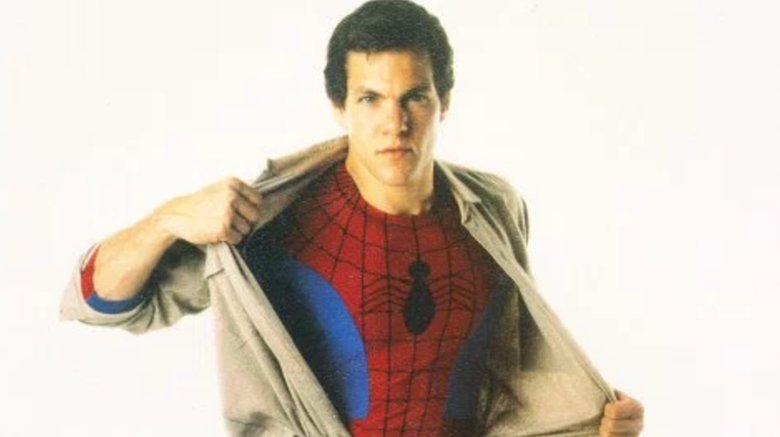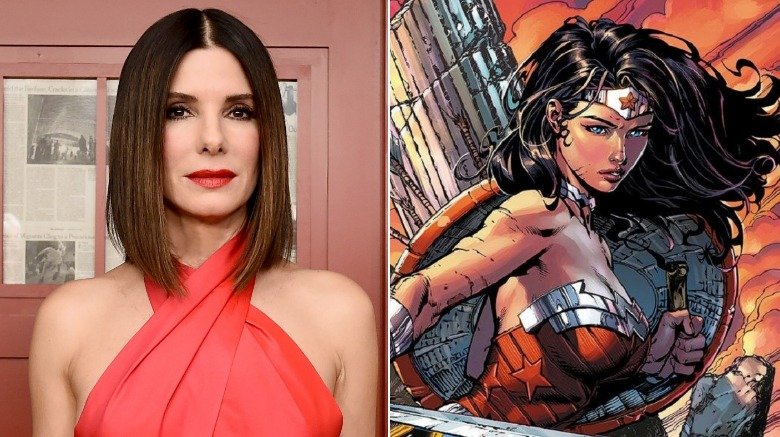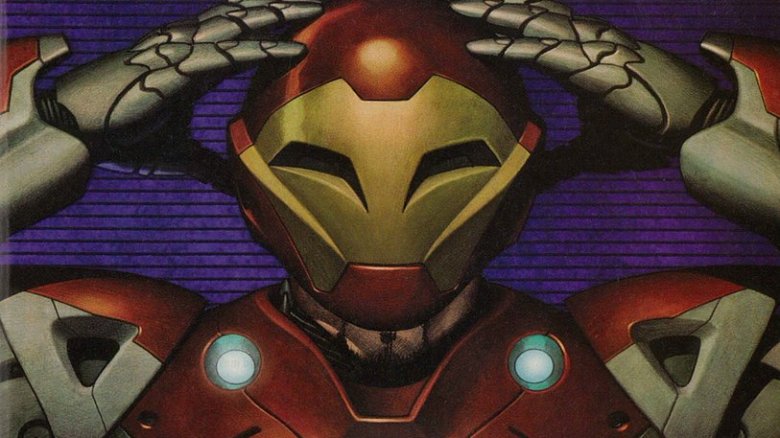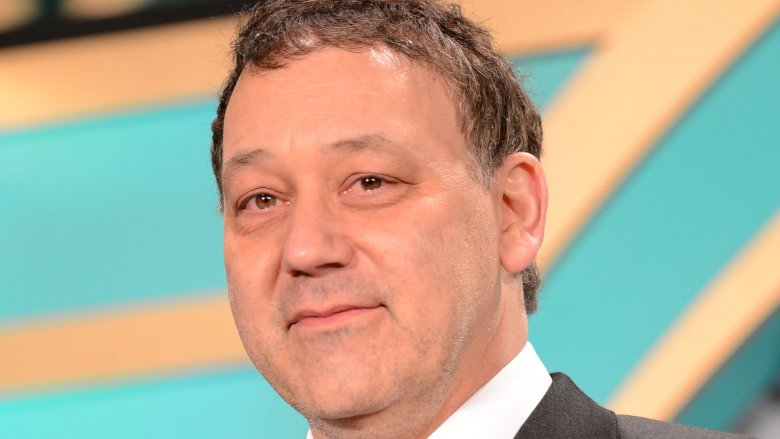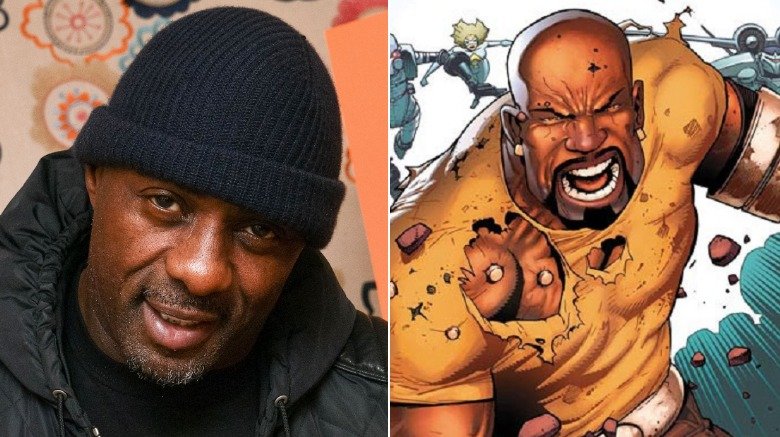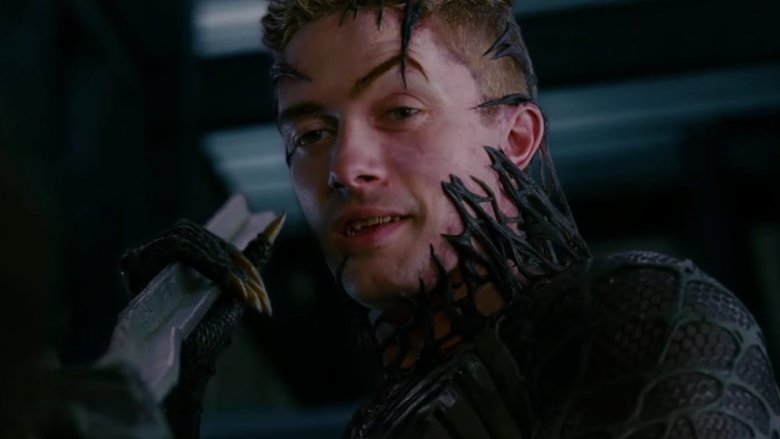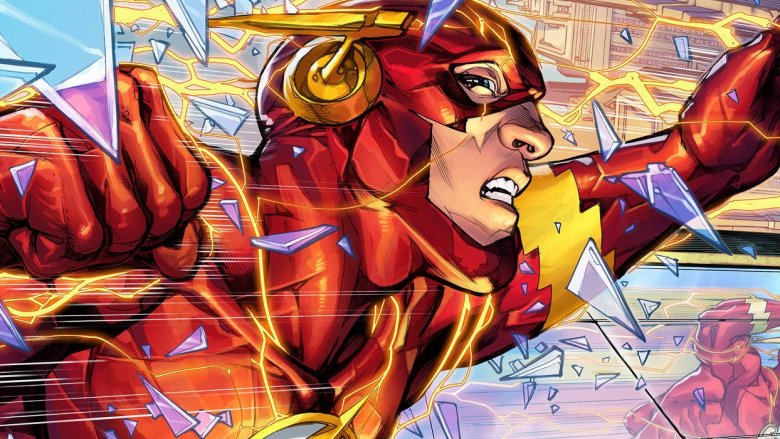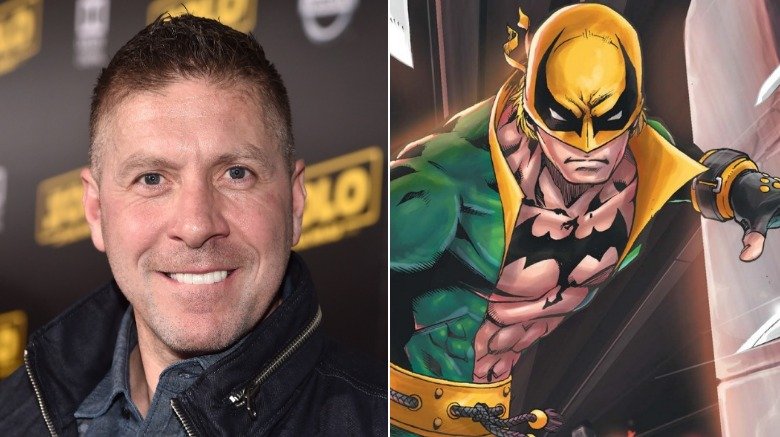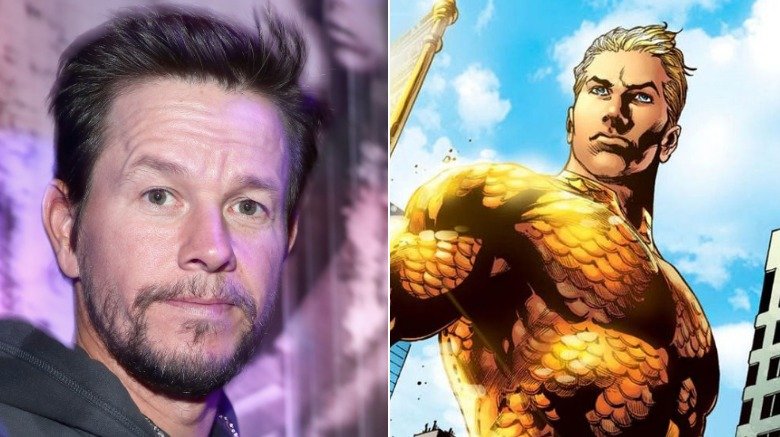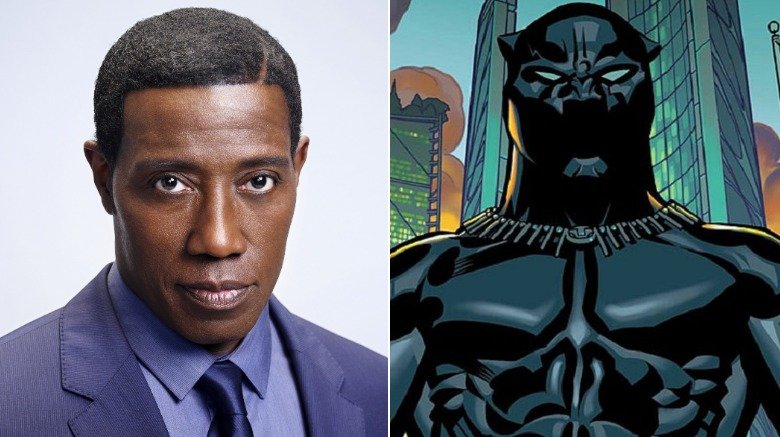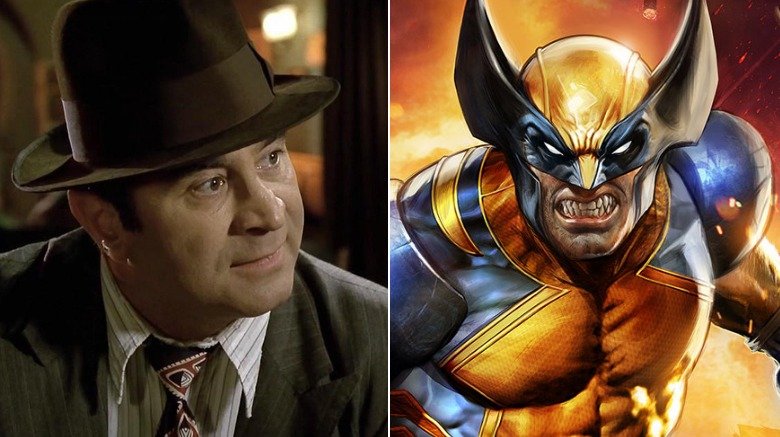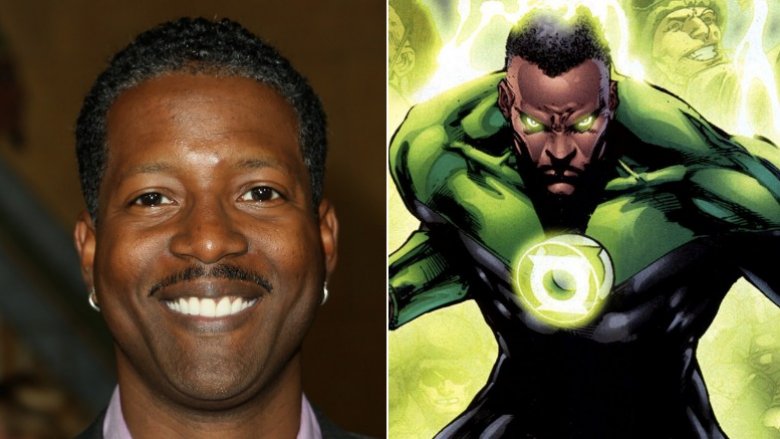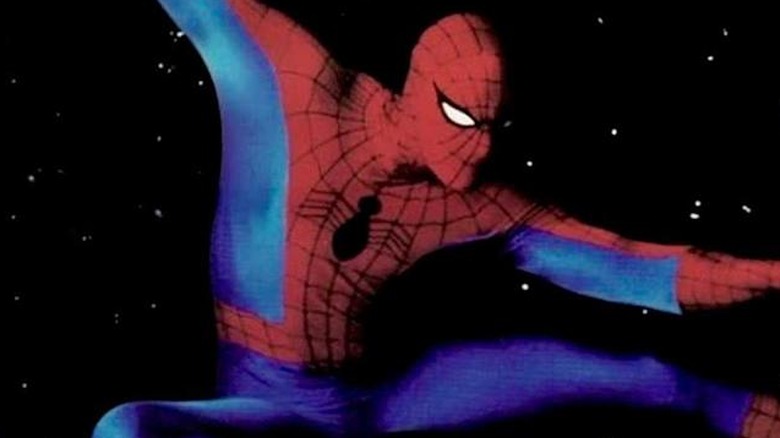Early Versions Of Superhero Movies You Never Got To See
It's kind of hard to get your head around today, but there was a time when the idea of a big-budget superhero movie raking in the big bucks at the box office was downright laughable in the minds of Hollywood executives. Successes like Richard Donner's 1978 classic Superman: The Movie and Tim Burton's landmark 1989 flick Batman were pretty much seen as flukes; comic books were for kids, the logic went, so big-screen adaptations were a gamble at best.
But before Marvel Studios was formed and promptly bet every last one of their chips on a shared universe involving what were then C-list characters, there were a few brave souls who tried to buck the prevailing logic and bring the colorful figures of their childhoods to the screen. Even after 2000's X-Men and 2002's Spider-Man established the blueprint for the modern superhero genre, some struggled to work from that blueprint, and comic book-based movies experienced a ton of growing pains in trying to figure out exactly what the genre could be, and what kind of stories could be told.
Here are the projects that talented filmmakers — and, well, some not-so-talented — tried and failed to get off the ground well before superhero cinema came to dominate pop culture. These are the early attempts at mining properties that may be seen as guaranteed moneymakers today, but were viewed as mere kid stuff not so very long ago.
Wonder Woman starring Sandra Bullock
There's a long history of attempts to tell the story of Princess Diana of Themiscyra on the big screen, but until 2017, they had always failed to launch. The reason for this can probably be summed up in two words: Lynda Carter. Her iconic portrayal of Wonder Woman in the TV series of the '70s and '80s had come to be viewed as the definitive live-action interpretation, and try as they might, producers simply could not fill her boots. Even during this decade, filmmakers such as Nicholas Winding Refn and Paul Feig fielded failed pitches for a Wonder Woman flick, and in the mid-'00s, future Avengers helmer Joss Whedon labored on a starring vehicle for Diana for two years before realizing that nobody liked his story ideas.
But going even further back than that, Ghostbusters director Ivan Reitman was one of the first filmmakers attached to a Wonder Woman movie in the '90s, but his version went nowhere. Producer Joel Silver was up next, and his first choice for the lead role was an interesting one: Sandra Bullock. Scribes Jon Coen (Minority Report) and Todd Alcott (Thir13en Ghosts) each took multiple cracks at scripts, but by all accounts failed miserably to do the character justice. The project was later briefly passed to George Miller (Mad Max: Fury Road) before being scrapped altogether; it would take roughly another 15 years for director Patty Jenkins and star Gal Gadot to finally crack the code.
Nick Cassavetes' Iron Man
2008's Iron Man was the film that launched the highest-grossing franchise in history, and it's only fortunate that by the time Marvel Studios was formed in 2005, it had reacquired the rights to the character. Said rights spent years being passed around from Fox to Universal to New Line, with names such as Stuart Gordon (The Re-Animator), Tim McCanlies (The Iron Giant), and even Quentin Tarantino being attached to the project at various times. In 2004, a script by Al Gough and Miles Millar (creators of the TV series Smallville) landed in the lap of David Hayter, who had penned the first two X-Men movies, and who set about reworking the screenplay. Among his contributions: making a villain out of Howard Stark, who aligned himself with Justin Hammer to become War Machine.
Then-rights holder New Line loved Hayter's version, and foreshadowed Marvel Studios' M.O. by going with an unconventional choice of director: Nick Cassavetes, whose biggest success was the romantic drama The Notebook. Cassavetes was formally announced to be helming the flick in 2004, with New Line aiming for a summer 2006 release. The studio had reason to be optimistic; they had spun box office gold from a Marvel property with the Blade franchise, and thanks in part to Hayter's X-Men flicks, superhero movies had recently become surprisingly viable. But the project languished in development long enough for Marvel to get Tony Stark's rights back in 2005 — and the rest is history.
Sam Raimi's Thor
Sam Raimi's Spider-Man series may look a little quaint by today's standards, but when the first film dropped in 2002, it seemed like a minor miracle that somebody — anybody — had not only made a big-budget film featuring the wall-crawler, but a pretty damn good one. The flick enjoyed the biggest opening weekend ever at the time, validating Raimi's lifelong dream of bringing a comic book hero to life. His 1990 cult classic Darkman, with a superheroic character of his own creation, was the result of the director's being rebuffed at every turn in his bid to adapt an existing comic book property such as the Shadow or Batman. After that film's relative success, Raimi figured he had some creative capital to spend.
When beloved Marvel mastermind Stan Lee died in late 2018, Raimi shared an eyebrow-raising story with The Hollywood Reporter. "After I did Darkman, Stan Lee called me and was like, 'Hey, kid, I liked your movie,'" the director said. "He took me out to lunch and said we should work together. I said I'd like to make a movie about Thor. We worked together writing treatments and took it to Fox and pitched it. And they said, 'Absolutely no. Comic books don't make good movies.' This was in 1991." It would take Raimi another eight years to land the gig of his dreams, and it's safe to say that he acquitted himself pretty well.
John Singleton's Luke Cage starring Idris Elba
The erstwhile Power Man wasn't the first black hero in comics, or even in Marvel lore (Black Panther and the Falcon both preceded him), but Luke Cage immediately earned a high profile by virtue of a colorful costume, a formidable power set, and an awesome catchphrase ("Sweet Christmas!"). His inspired pairing with superpowered martial artist Iron Fist sold a lot of books in the '70s, but before Mike Colter put his live-action stamp on the character with the Netflix series Luke Cage, only one honest attempt had been made to bring the human wrecking ball to the screen.
In 2003, Columbia Pictures — the distributor behind Spider-Man — optioned the character for a film adaptation, hiring scribe Ben Ramsey to pen a screenplay. Attached to helm the project was John Singleton, whose incendiary films Boyz n the Hood and Higher Learning had established him as a talented director capable of fielding black-themed stories accessible to a wide audience. His dream casting: Tyrese Gibson as Cage and Terence Howard (who would later appear as the first iteration of James Rhodes in Iron Man) as the villain Diamondback. The project eventually died on the vine, with the rights reverting to Marvel in 2013. But before it did, an even more interesting name was floated for the title role: Idris Elba, who told the Huffington Post in 2013 that he had briefly considered taking on the part.
Venom starring Topher Grace
As well-received as Sam Raimi's first two Spider-Man films were, that is exactly how well-received 2007's Spider-Man 3... wasn't. While it had its moments — Thomas Haden Church's Sandman was a definite highlight — it also suffered from villain bloat, a convoluted script, and Emo Peter Parker. Among the film's lowlights was the first live-action interpretation of Eddie Brock/Venom, portrayed by That 70's Show's Topher Grace, who left that series' eighth and final season to pursue film roles — and both his beloved longtime gig and his new, presumably very high-paying one suffered for it.
While Grace's take on the tortured, Parker-hating Brock was adequate, his Venom (who Raimi admitted to including only because he felt pressure from the studio) wasn't — but in 2008, despite the negative reception, Sony had plans to develop a Venom spin-off starring Grace. According to a report by The Hollywood Reporter at the time, the rapturous reception given Heath Ledger's portrayal of the Joker in that year's The Dark Knight had a lot to do with the studio's eagerness to move forward with the project, even as they were unsure whether Grace could carry a big-budget tentpole by his lonesome. Nevertheless, a script was written and went through several drafts for the next couple years, but the whole plan went out the window when Sony decided to reboot the Spider-Man franchise — which was almost certainly for the best, as Grace has always been puzzled about why he was cast in the first place.
David S. Goyer's The Flash
Well before Ezra Miller played the Flash, Warner Brothers had been attempting to get it done since 2004, when we came very close to getting a version written, produced, and directed by Batman Begins screenwriter David S. Goyer.
At the time, Goyer called the Flash his favorite of all of the DC properties, and in an interview later that year, he stated his plan to use the Wally West version of the character, relating that his script was close in tone to the Sam Raimi Spider-Man series and that he felt Ryan Reynolds would be perfect for the role. But alas, those pesky creative differences reared their ugly heads, and Goyer had departed the project by early 2007, saying, "The studio is heading off in a completely different direction. I expect you'll hear of some new developments on that front shortly." Not so much.
Iron Fist starring Ray Park
Danny Rand, the immortal Iron Fist, has yet to get his shot at a big screen adaptation — and his ill-fated small screen outing, which limped through two awful seasons on Netflix, probably never should have happened. But in 2000, Artisan Entertainment (which at the time held the rights to a number of Marvel characters) was dead-set on producing a feature vehicle for the relatively little-known character, and the project made a surprising amount of headway before biting the dust. Scribe John Turman (who would go on to pen Ang Lee's Hulk, and had also turned in an unproduced screenplay based on the Silver Surfer) was hired to write the script, and Artisan even got far enough along into development to cast their lead.
Scottish martial artist Ray Park, who had displayed a formidable screen presence in the role of Darth Maul in Star Wars Episode I: The Phantom Menace, officially signed on to portray Rand in late 2000, and principal photography was slated to begin early the following year. But the schedule kept getting pushed back, and although Park was still talking about the project as if it would actually happen in 2004, it simply failed to materialize. The rights eventually reverted back to Marvel Studios, which briefly kicked around the idea of an Iron Fist feature in 2010 before opting to go the serial route.
Aquaman starring Mark Wahlberg (or Leonardo DiCaprio)
You may recall that the HBO series Entourage got a lot of mileage out of a running gag involving Vinnie Chase (Adrian Grenier) being cast in an Aquaman movie, an idea which at the time seemed ridiculous. But sometimes, reality is even more ridiculous than fiction, and there was a time when Mark Wahlberg — one of the show's producers — briefly considered getting on board an Aquaman project with some help from a surprising collaborator. In 2005, talking about his well-known habit of turning down superhero roles, the actor said, "Yeah, that's kind of happened before, but now... it's crazy. Jim Cameron was joking around saying 'We should really do this thing' and everybody's all like, 'We should do Aquaman together.'"
While a starring vehicle for Arthur Curry directed by noted underwater photography enthusiast Cameron does sound intriguing, the thought of the square-jawed Wahlberg in the role seems a little on the nose. The idea obviously never came to fruition, but in 2009, another player entered the picture: Leonardo DiCaprio, who famously drowned unnecessarily at the conclusion of Cameron's Titanic, and whose production company Appian Way acquired the rights to co-produce a flick featuring the character with Warner Brothers. That also fell through, but it all worked out in the end: Aquaman (portrayed by Jason Momoa) was finally introduced on the big screen in 2017's Justice League, and the next year, his solo vehicle went on to gross over a billion dollars worldwide.
Black Panther starring Wesley Snipes
2018's Black Panther was the highest-grossing film of that year and a bona fide cultural phenomenon. Practically nobody could have guessed this would be the case — except Wesley Snipes, who had envisioned exactly that scenario over 25 years ago. In 1992, the red-hot star was dead-set on making Black Panther his next starring vehicle. "Black Panther spoke to me because he was noble, and he was the antithesis of the stereotypes presented and portrayed about Africans, African history and the great kingdoms of Africa," Snipes said in a 2018 conversation with The Hollywood Reporter. "It had cultural significance, social significance. It was something that [nobody had] seen before."
Snipes tried in vain to find the right pairing of writer and director for the project — a task made even more difficult by the fact that virtually nobody understood the character (an ill-fated meeting with director John Singleton illustrated that in hilarious fashion). CGI limitations were also a factor, as the star was intent on rendering Wakanda much as Ryan Coogler eventually would. The project lost steam, but Snipes learned from the failure: "I thought, hey, we can't do the King of Wakanda and the Vibranium and the hidden kingdom in Africa, let's do a black vampire," he told THR. Blade was an easier sell, and the 1998 flick became Snipes' signature role.
Kathryn Bigelow's Wolverine and the X-Men starring Bob Hoskins
Many attempts were made to bring the X-Men to the big screen before the 2000 adaptation basically kicked off the era of modern superhero films, but perhaps the closest anyone came to actually getting it done was in 1990, when Stan Lee and Marvel writer Chris Claremont pitched an X-Men feature to James Cameron and his then-wife, director Kathryn Bigelow. Cameron agreed to produce the flick, with Bigelow set to direct, and a screenplay was commissioned from Gary Goldman, the scribe behind Big Trouble in Little China and Total Recall.
That script, titled Wolverine and the X-Men, would have seen Wolverine recruiting Kitty Pryde for Charles Xavier's team, which was to come into conflict with a presidential candidate named Thomas Prince who, oddly, had the powers of Magneto. Cameron's choice for the part of Wolverine: Bob Hoskins. It could be argued that the stocky Who Framed Roger Rabbit star had a more comics-accurate look than Hugh Jackman, who would hold down the role for the better part of two decades. According to Claremont, the project went nowhere largely because Cameron was more interested in another Marvel property: Spider-Man, for which he had a very detailed (and deeply strange) vision. Of course, the director's Marvel dreams went unfulfilled, but things worked out for him just fine.
Green Lantern: Birth of a Hero
The Green Lantern movie we got in 2011 wasn't exactly a classic, but a strong contingent of fans disliked it for a reason other than the poor writing and CGI super-suit: they would rather have seen John Stewart, the African-American Lantern who debuted in the pages of DC Comics in 1972, than Ryan Reynolds' Hal Jordan. It came very close to happening — in 2007, The Closer star Corey Reynolds was keen to play the role, and was trying mightily to get a starring vehicle for Stewart off the ground with a script that he himself wrote, entitled Green Lantern: Birth of a Hero.
Reynolds even had a vision for three films, but the whole thing fell apart when scribe Greg Berlanti got a greenlight for his Lantern flick — the one which would eventually go into production, after a phalanx of writers took their passes at Berlanti's script. Ever optimistic, Reynolds held out hope that he could at least get a cameo as Stewart in that film, but it was not to be — and neither was Berlanti's film.
Cannon Films' Spider-Man
As hard as it is to believe, famous schlockmeisters Cannon Films briefly acquired the rights to Spider-Man in the '80s, when Don Kopaloff — Marvel's film agent at the time — literally couldn't get any other studios to bite. Cannon had big plans, eyeing Tom Cruise for the title role, Bob Hoskins (him again) for the part of Doctor Octopus, and Tobe Hooper for the director's chair. When Hooper passed, they tapped Joseph Zito, whose most successful previous credit had been Friday the 13th: The Final Chapter.
Eventually, they cast stuntman Scott Leva in the title role, and — true to their practice — produced a teaser trailer that was little more than a concept announcement, hoping to use it and a portfolio of photos with Leva as Peter Parker to acquire the funds to make the actual film. When investors failed to kick down their door, producers Menahem Golan and Yoram Globus slashed the film's budget in half, prompting Zito to depart. As if by cosmic providence, the failure of the notorious Superman IV: The Quest for Peace and the expense of producing Masters of the Universe sunk the company shortly thereafter, and Cannon's Spider-Man slipped into limbo — perhaps the biggest bullet the wall-crawler ever dodged.
